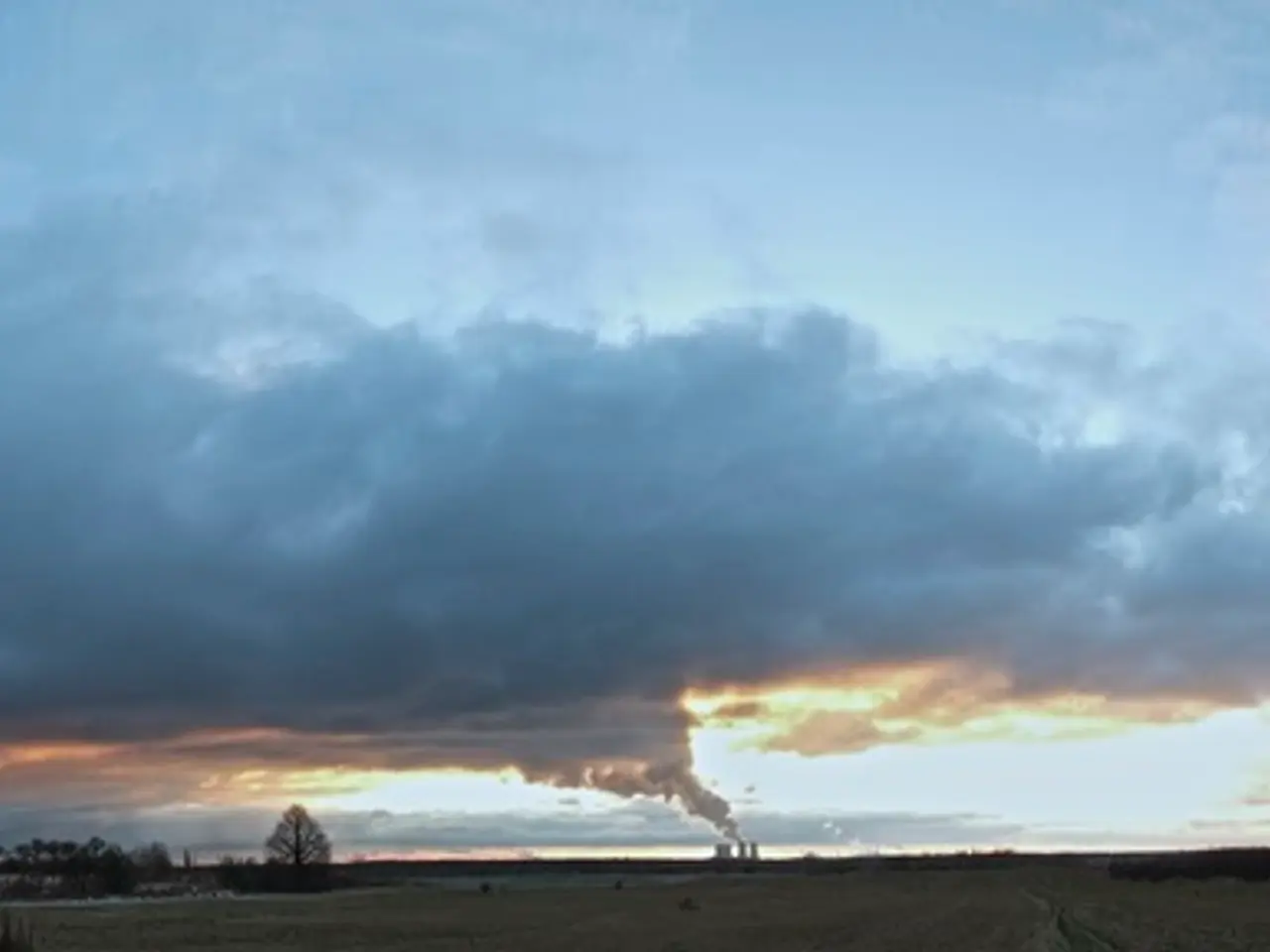Rising water levels detected in the Aral Sea's Kazakhstani region.
Kazakhstan witnesses a significant revival in the Northern Aral Sea, despite ongoing environmental challenges
The Ministry of Water Resources in Kazakhstan recently announced a remarkable turnaround in the Northern Aral Sea, which lies entirely within the country's borders. According to the latest data, the water volume in the northern section of the sea has increased by 42 percent, reaching an estimation of 27 billion cubic meters. The sea's salinity has also seen a drastic reduction.
The KazTAG news agency reported that the Northern Aral Sea now yields an annual fisheries catch of approximately 8,000 tons, yet this figure is a mere fraction of the totals recorded during the Soviet era. Once the world's fourth-largest lake, the Aral Sea began to evaporate in the 1960s, leading to one of the most devastating man-made environmental disasters on record. Today, the Aral Sea is divided into two parts, with the Uzbek portion, or the Southern Aral, continuing to evaporate and causes a multitude of public health issues.
Kazakhstan's revival plan for the Northern Aral Sea concentrates on enhancing water management efficiency, fostering the revival of the fisheries industry, and promoting ecotourism. However, the country's environmental challenges do not end there. River water levels are falling, and another large lake in the country, Balkhash, is experiencing declining water levels, partly due to water diversion for agricultural purposes by neighboring countries, such as China. The Caspian Sea is also shrinking, and Kazakhstan is battling desertification.
The collaboration between Kazakhstan and the World Bank on the second phase of restoring the Northern Aral Sea includes rebuilding the Kokaral Dam and constructing a water control facility. The aim is to increase the sea's surface area to 3,913 square kilometers and its water volume to 34 cubic kilometers. However, achieving the full refill process may take four to five years, subject to hydrological conditions, and managing water resources effectively remains a significant challenge.
Kazakhstan and France are also working together on a long-term master plan for the conservation and sustainable management of Lake Balkhash, with a focus on water quality assessment, digitalization, efficient water use, and transboundary cooperation. The water level in the lake has increased by 12 centimeters recently, mainly due to inflows from the Kapchagay reservoir. The current unified approach aims to address the challenges in managing the lake's ecosystem through a coordinated and data-driven strategy.
Despite these ongoing efforts, water scarcity, agricultural water utilization, and regional environmental impacts persist as challenges for Kazakhstan. While specific recent efforts focused on the Caspian Sea were not detailed in the search results, Kazakhstan's broader water management strategies encompass improving water efficiency and employing smart technologies for better resource management. Kazakhstan continues to face hydrological droughts, high agricultural water consumption, and potential impacts from neighboring countries' water diversion projects. Nonetheless, the revival of the Northern Aral Sea offers a glimmer of hope in the nation's environmental journey.
- The increased fisheries catch in the Northern Aral Sea, despite being a fraction of the Soviet era totals, highlights the positive effects of environmental science and effective water management strategies on the revival of a once depleted lake.
- As the efforts to revive the Northern Aral Sea continue, concerns about water scarcity, agricultural water utilization, and regional environmental impacts persist, pointing towards the need for coordinated and data-driven strategies in climate change mitigation and environmental health.
- In the face of continuing environmental challenges, such as desertification, falling river levels, and the shrinking Caspian Sea, Kazakhstan's multifaceted approaches to water management—including collaboration with international organizations on projects like the rebuilding of the Kokaral Dam and the conservation of Lake Balkhash—offer hope for future progress and sustainable development in the field of environmental science.







